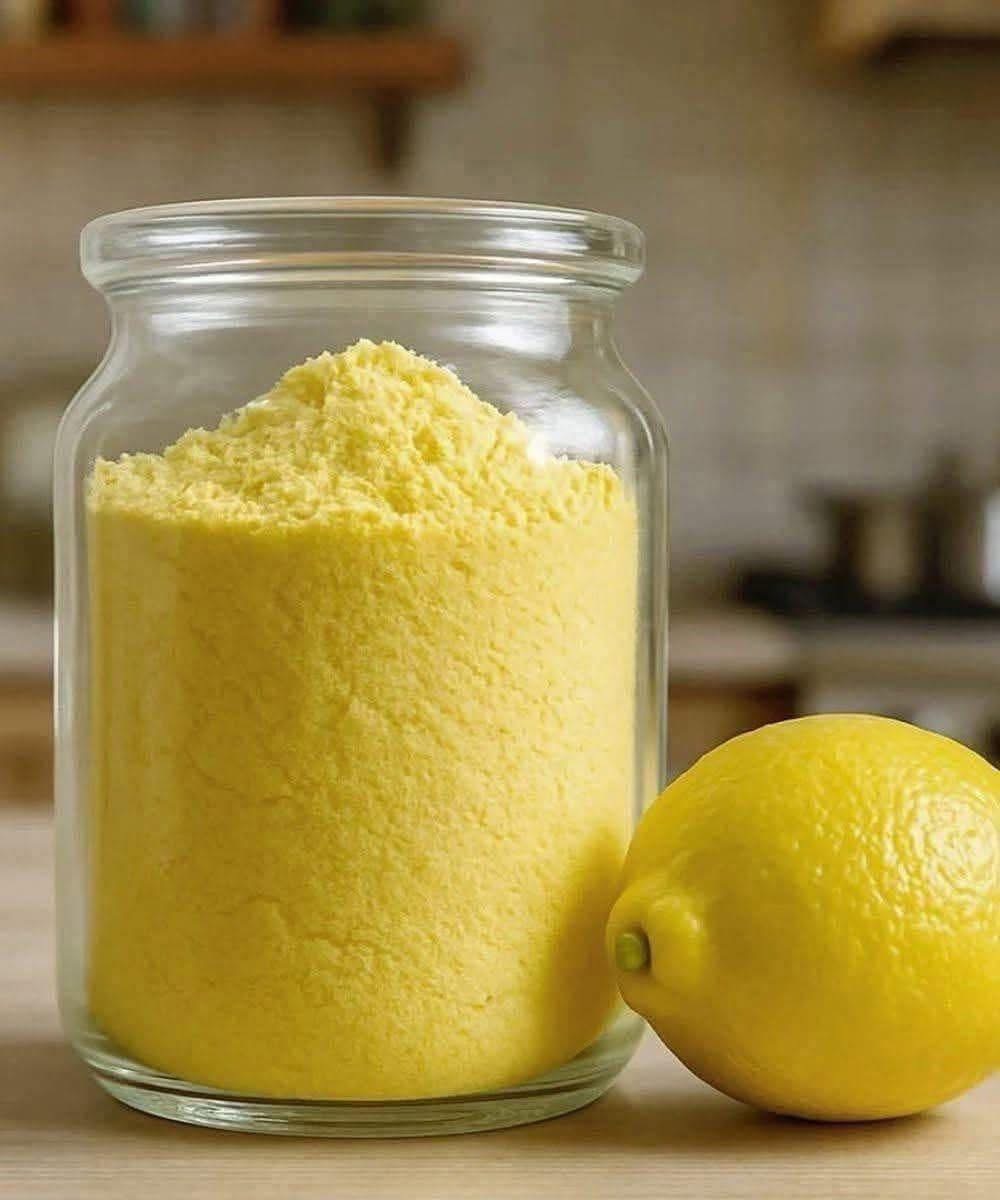Of course! Making your own lemon powder is a fantastic way to reduce food waste and capture the bright, sunny flavor of lemons to use all year long. It’s surprisingly simple and requires just one ingredient: lemons!
Here’s a complete guide on how to make lemon powder at home.
What is Lemon Powder?
Lemon powder is made from dehydrated whole lemons (peel and pulp) that are ground into a fine powder. It’s an incredibly versatile ingredient that packs a powerful, concentrated citrus punch without any added moisture.
Great uses for lemon powder:
· Seasoning: Add to spice rubs for chicken or fish.
· Flavoring: Stir into salad dressings, marinades, or butter.
· Baking: Incorporate into cake, cookie, or shortbread recipes.
· Drinks: Shake into cocktails, lemonade, or water for instant flavor.
· Dusting: Use as a finishing dust on seafood, vegetables, or desserts.
Method 1: Using the Whole Lemon (Most Common)
This method uses the entire lemon, minimizing waste and capturing the most flavor, which is concentrated in the peel.
Ingredients & Equipment
· Lemons: As many as you like! 4-5 medium lemons will make about ¼ – ⅓ cup of powder.
· Equipment:
· Dehydrator (most efficient)
· OR an Oven
· Cutting board & sharp knife
· Mandoline slicer (highly recommended for even drying) or a very sharp knife
· Blender, spice grinder, or food processor
· Fine-mesh sieve (optional, for a finer powder)
Step-by-Step Instructions
Step 1: Wash and Slice
· Scrub the lemons thoroughly under warm water to remove any wax or dirt.
· Using a mandoline on the thinnest setting ( Be careful! Use a guard!), slice the lemons into very thin, uniform rounds (about 1/8-inch or 2-3mm thick). Uniformity is key to even drying.
· If using a knife, slice as thinly and evenly as possible.
Step 2: Dehydrate
· Using a Dehydrator (Ideal):
· Arrange the lemon slices in a single layer on the dehydrator trays. They can be close but should not overlap.
· Dehydrate at 125°F – 135°F (52°C – 57°C) for 6-12 hours. The time will vary based on humidity and slice thickness.
· They are done when the slices are brittle, snap easily, and have no moisture left.
· Using an Oven:
· Preheat your oven to its lowest possible setting, ideally 150°F (65°C) or lower. If your oven doesn’t go that low, use the “warm” setting and prop the door open slightly with a wooden spoon.
· Place the lemon slices on a wire rack set over a baking sheet (for best air circulation).
· Bake for 2-4 hours, flipping halfway through, until completely dry and brittle.
Step 3: Grind and Sift
· Once the lemon slices are completely cool, break them into smaller pieces.
· Working in batches, grind the pieces in a clean, dry spice grinder (best), high-powered blender, or small food processor until you achieve a fine powder.
· For an ultra-fine powder (like commercial products), sift the ground powder through a fine-mesh sieve. You can regrind any larger pieces that remain.
Step 4: Store
· Store your homemade lemon powder in an airtight glass jar (a mason jar is perfect) in a cool, dark place. It will retain its potent flavor for up to a year.
Method 2: Using Just the Zest (The Most Potent & Zesty Powder)
This method creates an intensely flavorful and vibrant yellow powder by using only the oil-rich outer zest.
- Zest the Lemons: Use a microplane or fine zester to remove only the yellow part of the peel. Avoid the bitter white pith.
- Dehydrate the Zest: Spread the fresh zest in a thin layer on a dehydrator tray lined with a parchment sheet (or on a baking sheet for the oven). Dehydrate at the same low temperature (125°F / 52°C) for 1-2 hours until it becomes brittle and crumbly.
- Grind and Store: The dried zest will grind into a powder very easily. Follow the same grinding and storage instructions as above.
Key Tips for Success
· Choose Organic: Since you’re using the whole peel, it’s highly recommended to use organic, unwaxed lemons to avoid pesticides and wax.
· Patience is Key: Do not rush the drying process. If there’s any moisture left, the powder will clump and could mold in storage.
· Let Them Cool: Before grinding, ensure the lemon slices are completely cool. Any residual warmth can create steam in the grinder and cause clumping.
· Avoid Humidity: Don’t grind the powder on a humid day if you can avoid it, as it will absorb moisture from the air.
Enjoy your homemade, zero-waste flavor booster! A little sprinkle of this sunshine will brighten up countless dishes.
